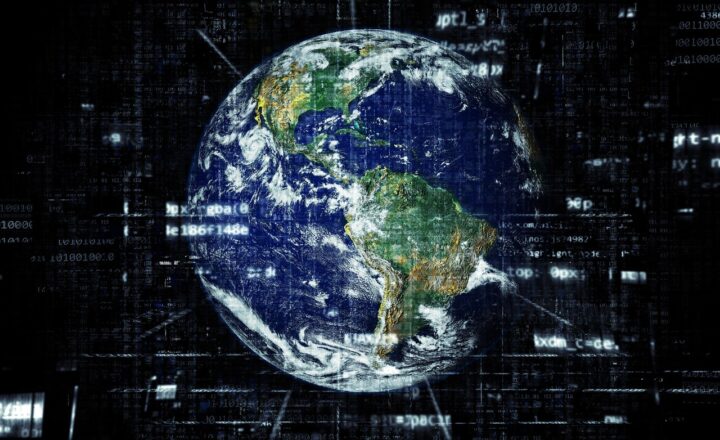10 Powerful Books That Address Social Issues and Promote Change
November 11, 2024

Literature has always played a crucial role in sparking conversations about social issues and advocating for change. Books, whether fiction or non-fiction, can introduce readers to new ideas, perspectives, and experiences, challenging the status quo and inspiring action. In this article, we’ll explore ten powerful books that not only address pressing social issues but also promote change in various aspects of society.
1. “To Kill a Mockingbird” by Harper Lee
Published in 1960, this classic novel addresses racial injustice in the American South through the eyes of a young girl named Scout Finch. Set during the Great Depression, the narrative follows her father, Atticus Finch, as he defends a Black man, Tom Robinson, who is falsely accused of raping a white woman. Lee’s poignant exploration of racism, moral integrity, and empathy continues to resonate today.
Key Takeaway: “To Kill a Mockingbird” encourages readers to confront their own prejudices and advocate for justice and equality.
2. “The Hate U Give” by Angie Thomas
This contemporary young adult novel follows Starr Carter, a teenager who witnesses the police shooting of her best friend, Khalil. As the story unfolds, Starr grapples with her identity, the complexities of her community, and the fallout from the incident. Thomas’s work highlights issues of police brutality, systemic racism, and the importance of finding one’s voice in the face of injustice.
Key Takeaway: “The Hate U Give” empowers young readers to speak out against injustice and navigate the challenges of activism.
3. “Educated” by Tara Westover
In this memoir, Tara Westover recounts her life growing up in a strict and abusive household in rural Idaho, where she was denied an education and kept away from the mainstream society. Her journey from ignorance to knowledge highlights the transformative power of education and the struggles she faced breaking away from her past. Westover’s story emphasizes themes of resilience and self-discovery.
Key Takeaway: “Educated” promotes the idea that education is a powerful tool for personal and societal change, challenging oppressive environments.
4. “The New Jim Crow” by Michelle Alexander
In this groundbreaking non-fiction book, lawyer and civil rights advocate Michelle Alexander argues that mass incarceration functions as a contemporary system of racial control that perpetuates inequality. By analyzing the criminal justice system’s impact on African American communities, she sheds light on the systemic racism ingrained within it.
Key Takeaway: “The New Jim Crow” urges readers to re-evaluate the prison system and its implications for racial justice and reform.
5. “Between the World and Me” by Ta-Nehisi Coates
This poignant letter from Coates to his teenage son explores the realities of being Black in America. He discusses the historical context of racism, the body as a site of struggle, and the importance of love and family in combating systemic oppression. Coates eloquently articulates the fear and hope that come with navigating a society fraught with racial injustice.
Key Takeaway: “Between the World and Me” challenges readers to acknowledge and confront the lived experiences of Black Americans, fostering empathy and understanding.
6. “I Am Malala” by Malala Yousafzai
This memoir tells the extraordinary story of Malala Yousafzai, a Pakistani girl who stood up against the Taliban for her right to education. After surviving an assassination attempt, Malala continues to advocate for female education worldwide. Her powerful narrative highlights the ongoing struggle for girls’ rights globally.
Key Takeaway: “I Am Malala” inspires readers to champion education as a fundamental right and encourages activism for global change.
7. “So You’ve Been Publicly Shamed” by Jon Ronson
In this non-fiction book, journalist Jon Ronson investigates the phenomenon of public shaming in the age of social media. Through interviews and anecdotes, he explores the ramifications of online mob justice and how it impacts individuals’ lives. The work serves as a commentary on cancel culture and its social implications.
Key Takeaway: “So You’ve Been Publicly Shamed” prompts reflection on the ethics of social media behavior and the importance of compassion in public discourse.
8. “Sapiens: A Brief History of Humankind” by Yuval Noah Harari
In this thought-provoking book, Harari examines the history of humankind, tracing our evolution from hunter-gatherers to the modern era. He addresses significant global issues like climate change, inequality, and future challenges facing humanity. By providing a broad perspective on our species, Harari encourages readers to contemplate the path forward.
Key Takeaway: “Sapiens” invites readers to consider how our collective history shapes contemporary social issues and future possibilities for change.
9. “This Changes Everything: Capitalism vs. The Climate” by Naomi Klein
Naomi Klein argues in this influential book that climate change is not just an environmental issue but a result of the current capitalist system. She critiques capitalism’s impact on the planet while advocating for a transformative approach to economic and social justice.
Key Takeaway: “This Changes Everything” serves as a rallying cry for environmental justice, encouraging readers to rethink economic systems and their relationship with the planet.
10. “The Immortal Life of Henrietta Lacks” by Rebecca Skloot
This non-fiction narrative tells the story of Henrietta Lacks, whose cells were taken without her knowledge in the 1950s and became one of the most important tools in medicine. Skloot illustrates the ethical issues surrounding biomedical research, racism, and the exploitation of Black bodies in science.
Key Takeaway: “The Immortal Life of Henrietta Lacks” highlights the importance of ethics in science and the need for equitable treatment of all individuals in medical research.
Conclusion
Books have the power to educate, inspire, and ignite movements for change. The ten titles featured in this article tackle significant social issues, encouraging readers to reflect, engage, and advocate for a better world. By diving into these powerful narratives, you can gain insights into the struggles and triumphs of those fighting for justice and equality. Whether you’re looking to broaden your understanding of social issues or find motivation for your activism, these books are an essential source of knowledge and empowerment.
Read these powerful stories, let them inspire you, and become a catalyst for change in your community.







